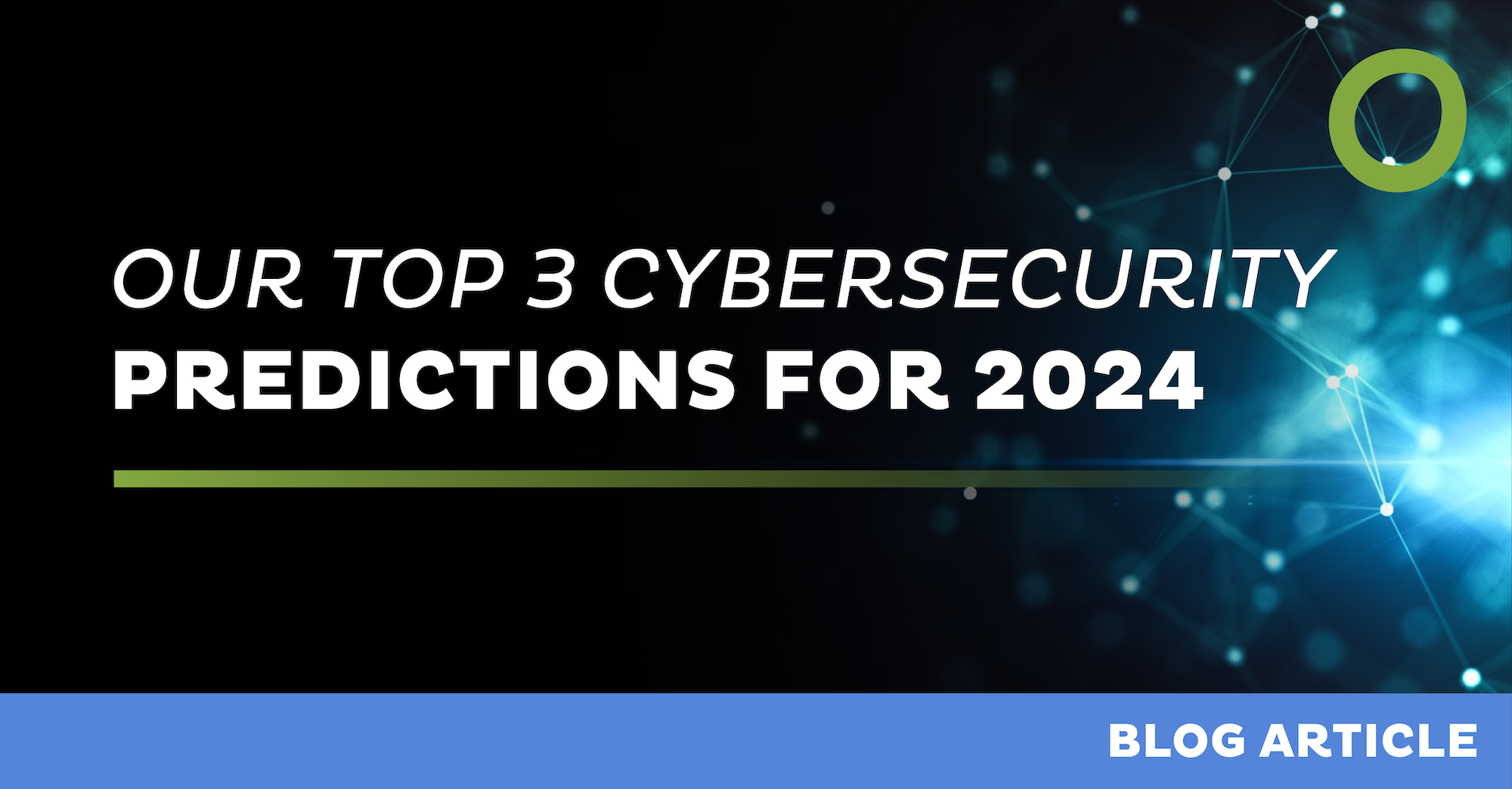Future-Proof Your Company: Key Cybersecurity Predictions You Need to Know
As companies confront the speeding up pace of electronic change, understanding the advancing landscape of cybersecurity is crucial for lasting resilience. Forecasts recommend a considerable uptick in AI-driven cyber threats, along with heightened regulatory analysis and the necessary shift in the direction of Zero Trust Architecture.
Surge of AI-Driven Cyber Dangers

One of one of the most worrying growths is making use of AI in creating deepfakes and phishing schemes that are incredibly persuading. Cybercriminals can make sound and video clip web content, posing executives or trusted individuals, to adjust victims into divulging sensitive information or authorizing deceptive deals. Furthermore, AI-driven malware can adjust in real-time to avert detection by traditional protection measures.
Organizations must recognize the urgent demand to bolster their cybersecurity structures to deal with these advancing hazards. This consists of investing in innovative hazard discovery systems, promoting a culture of cybersecurity awareness, and executing robust event feedback strategies. As the landscape of cyber dangers changes, aggressive procedures end up being necessary for securing delicate information and preserving company integrity in an increasingly electronic globe.
Enhanced Focus on Information Privacy
Just how can organizations efficiently navigate the growing focus on data privacy in today's electronic landscape? As regulative structures develop and consumer assumptions increase, services should focus on robust information privacy strategies.
Buying staff member training is critical, as staff understanding straight influences data defense. Organizations ought to cultivate a society of privacy, motivating staff members to understand the value of guarding sensitive info. In addition, leveraging innovation to enhance data protection is essential. Carrying out innovative security methods and protected data storage options can considerably alleviate threats related to unauthorized access.
Cooperation with lawful and IT groups is essential to straighten information personal privacy efforts with service goals. Organizations must likewise engage with stakeholders, including customers, to communicate their commitment to information personal privacy transparently. By proactively attending to information privacy issues, services can develop trust and boost their online reputation, inevitably adding to long-lasting success in an increasingly looked at electronic atmosphere.
The Shift to Zero Trust Style
In feedback to the progressing risk landscape, organizations are significantly taking on No Depend on Architecture (ZTA) as a basic cybersecurity method. This method is predicated on the concept of "never trust, constantly verify," which mandates continual verification of customer identities, tools, and data, no matter their location within or outside the network border.
Transitioning to ZTA includes implementing identity and accessibility administration (IAM) remedies, micro-segmentation, and least-privilege gain access to controls. By granularly controlling accessibility to resources, companies can mitigate the danger of expert threats and minimize the influence of outside violations. In addition, ZTA incorporates robust monitoring and analytics capacities, enabling companies to spot and react to anomalies cyber resilience in real-time.

The shift to ZTA is also sustained by the raising fostering of cloud services and remote work, which have increased the strike surface (7 Cybersecurity Predictions for 2025). Typical perimeter-based protection designs are inadequate in this new landscape, making ZTA an extra durable and adaptive structure
As cyber dangers remain to expand in class, the adoption of Absolutely no Depend on principles will certainly be vital for organizations looking for to safeguard their properties and preserve regulatory conformity while guaranteeing organization continuity in an uncertain atmosphere.
Regulatory Adjustments coming up

Future regulations are expected to attend to a series of issues, consisting of information privacy, breach notice, and case response procedures. The General Information Defense Regulation (GDPR) in Europe has set a criterion, and comparable structures are emerging in other regions, such as the United States with the recommended government personal privacy laws. These policies usually enforce strict penalties for non-compliance, emphasizing the need for companies to prioritize their cybersecurity actions.
In addition, markets such as financing, healthcare, and important framework are likely to face much more strict demands, showing the sensitive nature of the data they deal with. Compliance will not merely be a legal responsibility however an important element of building count on with clients and stakeholders. Organizations should stay ahead of these adjustments, incorporating governing demands right into their cybersecurity techniques to guarantee durability and secure their assets successfully.
Importance of Cybersecurity Training
Why is cybersecurity training an essential part of an organization's protection method? In an era where cyber threats are significantly sophisticated, companies have to recognize that their workers are often the initial line of protection. Effective cybersecurity training furnishes staff with the understanding to determine potential hazards, such as phishing assaults, malware, and social engineering methods.
By cultivating a culture of security awareness, companies can considerably decrease the risk of human error, which is a leading source of data violations. Regular training sessions make sure that staff members stay notified concerning the most up to date threats and finest techniques, thereby improving their capability to react appropriately to events.
In addition, cybersecurity training promotes compliance with regulative needs, minimizing the threat of legal repercussions and monetary charges. It additionally encourages employees to take ownership of their function in the company's protection structure, causing an aggressive rather than reactive approach to cybersecurity.
Final Thought
In final thought, the evolving landscape of cybersecurity needs aggressive actions to attend to emerging threats. The surge of AI-driven assaults, coupled with enhanced information privacy problems and the shift to Zero Trust fund Design, necessitates a thorough technique to security.